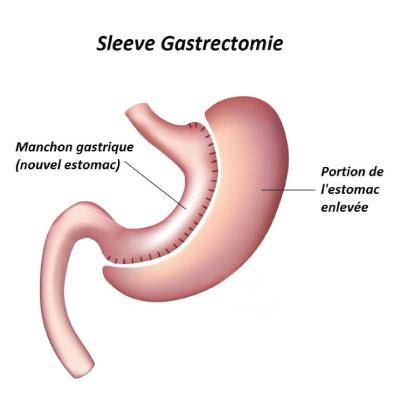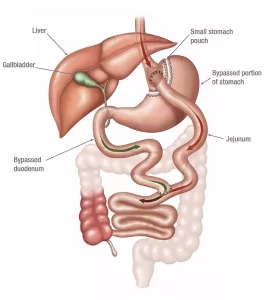The Power of Coaching for Obesity
Table of Contents

Unlocking the Power of Coaching for Obesity: A Comprehensive Guide.
Obesity face in their daily lives. Obesity is a complex and multifactorial disease that requires a comprehensive approach to management. While traditional methods such as diet and exercise can be effective, they often fail to address the underlying psychological and behavioral factors that contribute to the development and maintenance of obesity. This is where coaching for obesity comes in.
Introduction to Coaching for Obesity
Coaching for obesity is a collaborative and client-centered approach that aims to empower individuals with obesity to take control of their health and well-being. It involves working with a qualified coach who has expertise in obesity management to develop a personalized plan that addresses the unique needs and challenges of each individual. Coaching for obesity is not a one-size-fits-all approach, but rather a tailored and flexible approach that can be adapted to an individual’s changing needs and circumstances.
Understanding Obesity and Its Causes
Before diving into the specifics of coaching for obesity, it is important to understand what obesity is and what causes it. Obesity is a chronic disease characterized by an excessive accumulation of body fat that can lead to a range of health problems, including type 2 diabetes, heart disease, and certain cancers. The causes of obesity are complex and multifactorial, and include genetic, environmental, and behavioral factors.
The Role of Coaching in Obesity Management
Coaching for obesity is a crucial component of a comprehensive approach to obesity management. It provides individuals with the tools and support they need to make sustainable lifestyle changes that can lead to long-term weight loss and improved health outcomes. A coach can help individuals identify their unique barriers to success and develop strategies to overcome them. They can also provide accountability and motivation to help individuals stay on track and achieve their goals.
Types of Coaching for Obesity
There are several different types of coaching for obesity, including one-on-one coaching, group coaching, and online coaching. Each type of coaching has its own unique benefits and drawbacks. One-on-one coaching provides personalized attention and support, while group coaching provides a sense of community and shared experiences. Online coaching is convenient and flexible but may lack the personal connection of in-person coaching.

Benefits of Coaching for Obesity
The benefits of coaching for obesity are numerous and far-reaching. Some of the key benefits include:
- Personalized attention and support
- Accountability and motivation
- Improved self-awareness and self-efficacy
- Improved health outcomes
- Improved quality of life
- Reduced risk of chronic diseases
How to Find a Qualified Obesity Coach
Finding a qualified obesity coach can be a daunting task, but it is essential to ensure that individuals receive the best possible care and support. Some tips for finding a qualified obesity coach include:
- Researching credentials and certifications
- Reading reviews and testimonials
- Asking for referrals from healthcare providers or friends and family
- Interviewing potential coaches to assess their approach and expertise
It is important to find a coach who has experience and expertise in obesity management and who uses evidence-based strategies and techniques.
The Coaching Process for Obesity
The coaching process for obesity typically involves several key steps, including:
Setting Realistic Goals and Objectives
The first step in the coaching process is to set realistic and achievable goals and objectives. These goals should be specific, measurable, and tailored to the individual’s needs and circumstances. The coach and client should work together to develop a plan that takes into account the individual’s lifestyle, preferences, and challenges.
Overcoming Barriers to Success
Once goals and objectives have been established, the coach and client can work together to identify and overcome barriers to success. These barriers can include physical, psychological, and environmental factors that may hinder progress. The coach can provide guidance and support to help the client develop strategies to overcome these barriers and stay on track.
Coaching Tools and Techniques for Obesity Management
Coaching for obesity involves the use of a wide range of tools and techniques to help individuals achieve their goals. These can include goal-setting, self-monitoring, problem-solving, cognitive restructuring, and motivational interviewing. The coach can work with the client to identify which tools and techniques are most effective for their individual needs and preferences.
Measuring Progress and Evaluating Outcomes
Throughout the coaching process, progress should be regularly measured and evaluated. This can include tracking weight loss, monitoring physical activity and food intake, and assessing psychological well-being. The coach can use this information to adjust the plan as needed and provide feedback and support to help the client stay on track.
Future Trends in Coaching for Obesity
As the field of obesity management continues to evolve, so too does the role of coaching in obesity management. Some future trends in coaching for obesity may include:
- The use of technology such as apps and wearables to enhance self-monitoring and support
- A greater focus on the psychological and emotional factors that contribute to obesity
- The integration of coaching into primary care settings to improve access and outcomes
- The development of personalized and precision approaches to coaching that take into account an individual’s unique genetic and environmental factors
Conclusion
Coaching for obesity is a powerful and effective approach to obesity management that can help individuals achieve long-term weight loss and improved health outcomes. It provides personalized attention and support, accountability and motivation, and the tools and techniques needed to make sustainable lifestyle changes. By working with a qualified coach, individuals with obesity can take control of their health and well-being and unlock the power of coaching for a healthier and happier life.



















